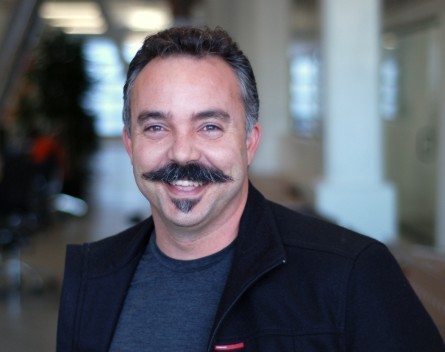
Vend founder Vaughan Rowsell knows all too well the ups and downs of working in a startup.
Prior to founding Vend, a point-of-sale software provider that raised $22 million in capital last year, in a round led by PayPal co-founder Peter Thiel, Rowsell was chief technology officer at online travel startup Vianet.
Rowsell says Vianet was “Airbnb, before there was Airbnb”. It allowed users to rent out any form of accommodation “whether it’s a spare room in a house, a boat, or a hotel”.
Vianet would eventually be acquired by Trade Me, one of the startup’s largest customers. And while an acquisition might look at first glance like a win for the startup’s founders – that wasn’t the case.
“We made a host of mistakes in that business, basically burnt a lot of cash,” Rowsell told a Startup Grind Melbourne event recently.
Unfortunately, those mistakes happened at the wrong time and money dried up just as the global financial crisis hit.
“Every investor on the plant started stuffing their cash under their mattresses,” Rowsell says.
“It was difficult to get much funding, so we had to have a fire sale. Trade Me was one of our best customers and we were powering all of their online booking services. So that sounds like it was great. But actually it was pretty lousy; the founders didn’t see much, or anything out of it.
“We learnt a truckload, but it was one of the worst experiences of my life.”
Here’s some advice Rowsell has for startup founders:
1. Be prepared for anything
“Always have multiple plans. More often than not you’re in growth mode, you’re growing the business or investing in the business faster than revenue growth is catching up. We’re just going to go hard, grow grow grow, raise more money as we go to fund the growth. But you should always have a plan B. Because at some point you may not be able to raise that money.
“It might be to slow down growth to get yourself into a cash flow positive position. Plan C might be selling part of the business. You need to have all of those plans and keep constantly monitoring them to make sure they’re all achievable.”
2. Trust your team
“Trust people and they will trust you. Be OK with not knowing everything. Very quickly early on you’ll realise that you’re starting to max out all the stuff you know. And as your business grows, you’ll find there’s layers on top of what you know, that you don’t know, and you’re going to have to figure it out really quick.
“You’re going to have to learn fast and learn to trust people. Bring people on board and hand over more and more stuff to people that are smarter than you and be OK with that.”
3. Be open and transparent
“Be transparent and open with your team. Because being in a startup is tough. If you try and keep secrets from everyone it just creates this atmosphere of mistrust. You want to have that trust because you’ll have good times and bad times. So when you’re standing up in front of them, doing some hard stuff, they trust that you’re being open and honest with them about everything.”
4. Don’t spend money you don’t have
“If you’re talking to investors, remember, you don’t have the money until you’ve got the money in the bank. So don’t start spending the money until one – they’ve signed a term sheet and two – there’s cash in the bank.”
Follow StartupSmart on Facebook, Twitter, and LinkedIn. Buy tickets to the 2015 StartupSmart Awards.


COMMENTS
SmartCompany is committed to hosting lively discussions. Help us keep the conversation useful, interesting and welcoming. We aim to publish comments quickly in the interest of promoting robust conversation, but we’re a small team and we deploy filters to protect against legal risk. Occasionally your comment may be held up while it is being reviewed, but we’re working as fast as we can to keep the conversation rolling.
The SmartCompany comment section is members-only content. Please subscribe to leave a comment.
The SmartCompany comment section is members-only content. Please login to leave a comment.